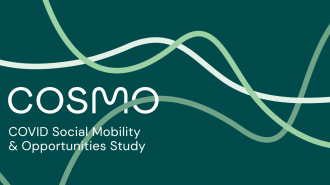
- Our studies
- Our research
- Publications and resources
- Data access and training
- About
- News
- Events
- Get in touch
- Join our mailing list

Welcome to our news and blogs section. Here you’ll find the latest developments and insights from across our longitudinal studies.

What can cohort evidence tell us about the predictive power of early maths skills and what policymakers can do to boost the nation’s numeracy?

People who went to private school are more likely to be a healthy weight and have lower blood pressure in their mid-40s compared to their state school counterparts.

For most young people in England, growing up in the north or south, by the coast or in the city, is less important to their educational progress than their socioeconomic background and whether they come from a deprived neighbourhood.

The proportion of UK graduates who found work straight out of university fell by nearly 30% between those born in the late 70s to those a decade younger.

New research shows children who struggle with their mental health are more likely to later be excluded from school and to truant. And exclusion and truancy can increase their mental health difficulties.

Data from Wave 2 of the COVID Social Mobility and Opportunities (COSMO) study is now available to researchers interested in exploring how COVID-19 and the cost-of-living crisis has affected the lives of 17-18-year-olds across England.

Nearly two fifths of 17-18 year olds from the most disadvantaged areas have struggled to receive the mental health support they need in the past year.

Up to 34% of A-level students are considering living at home if they get into their preferred university next week, according to new UCL and Sutton Trust research, using data from the COVID Social Mobility & Opportunities (COSMO) study.

Men are 34% more likely than women to be employed in top jobs at age 42 with overconfidence explaining up to 11% of the gender gap, on average, for full-time workers.
Generation Z children born into the poorest fifth of families in the UK are 12 times more likely to experience a raft of poor health and educational outcomes by the age of 17 compared to more affluent peers, finds a new report led by UCL researchers.
Around half of all young people who reported experiencing long COVID felt they had fallen behind their classmates due to the COVID-19 pandemic – with almost three in five saying that they had not caught up with lost learning – according to new research involving UCL.

Poor mental health among young people (aged 16 and 17) has increased by more than a quarter since 2017, according to new research by UCL and the Sutton Trust, using the COVID Social Mobility & Opportunities (COSMO) study.
Ryan Bradshaw
Senior Communications Officer
Phone: 020 7612 6516
Email: r.bradshaw@ucl.ac.uk